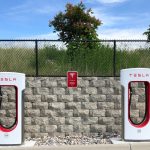BMW is expanding its commitment to sustainable mobility by teaming up with Toyota to develop hydrogen fuel-cell vehicles. This collaboration marks a significant step in BMW’s long-standing interest in hydrogen technology, which dates back to the 1970s. The partnership aims to introduce a consumer-ready hydrogen fuel-cell vehicle by 2028, reflecting BMW’s dedication to offering diverse alternative powertrain options. Additionally, this joint effort underscores the automakers’ belief in hydrogen as a viable complement to battery electric vehicles, potentially reshaping the future of clean transportation.
Historically, BMW has explored hydrogen technology alongside other automakers, but recent initiatives highlight a more concerted effort to bring fuel-cell vehicles to the mainstream market. Previous collaborations and pilot programs laid the groundwork, providing valuable insights and on-road experience. The latest partnership with Toyota builds on these earlier endeavors, aiming to address longstanding challenges such as infrastructure and production costs. This evolution signifies a more strategic approach to integrating hydrogen fuel cells into consumer vehicles.
What is BMW’s strategy for hydrogen fuel-cell vehicles?
BMW plans to offer a range of vehicles equipped with either battery or hydrogen fuel-cell powertrains. The Neue Klasse line, manufactured in San Luis Potosí, Mexico, is designed with modularity in mind, allowing for easy integration of hydrogen cells into the existing design framework. This flexibility enables BMW to cater to varying consumer preferences and regional market demands, positioning hydrogen as a key component in their electric mobility portfolio.
How does the partnership with Toyota benefit both companies?
“BMW continually follows a technology-openness approach and sees hydrogen as the missing piece for completing the electric mobility puzzle, where battery electric drive systems are not an optimal solution,”
declared Alexander Bilgeri, BMW’s vice president of corporate communications. The alliance with Toyota leverages both companies’ expertise in fuel-cell technology, allowing for shared research and development resources. This collaboration accelerates the timeline for bringing a consumer hydrogen vehicle to market and helps in tackling common obstacles such as production scalability and cost reduction.
What challenges does hydrogen infrastructure face?
Despite the potential of hydrogen fuel-cell vehicles, significant hurdles remain regarding infrastructure development. The scarcity of hydrogen fueling stations and the high costs associated with building them are major impediments. Experts like Jason Munster from CleanEpic emphasize the need for collaborative efforts to establish hydrogen hubs, which are essential for supporting both commercial and consumer vehicles. BMW’s vision includes integrating these hubs with existing energy systems to facilitate broader adoption, although widespread availability is still projected to be a decade away.
Developing a robust hydrogen infrastructure requires substantial investment and coordinated planning. Current initiatives under the Inflation Reduction Act aim to allocate over $7 billion towards building hydrogen hubs, yet clarity on tax credits and funding mechanisms remains limited. The ambitious roadmap suggests that while commercial trucking fuel stations might become operational by 2027, consumer-focused hydrogen stations may not achieve widespread deployment until around 2040. This extended timeline presents a challenge for immediate market penetration of hydrogen vehicles.
Addressing these infrastructure challenges is crucial for the success of hydrogen fuel-cell technology. Collaboration between automakers, governments, and energy providers is essential to create a sustainable and accessible network of hydrogen stations. BMW’s strategic partnership with Toyota represents a proactive approach to overcoming these barriers, positioning both companies to lead the way in hydrogen mobility once the necessary infrastructure is in place.
Advancing hydrogen fuel-cell vehicles requires more than just technological innovation; it necessitates a comprehensive ecosystem that supports production, distribution, and refueling. BMW’s efforts, bolstered by the Toyota partnership, highlight the importance of industry-wide cooperation in achieving these goals. As infrastructure projects progress and costs decrease, hydrogen may become a more viable and attractive option for consumers seeking sustainable transportation alternatives.










